
It’s official: Keith Wilson is Portland’s next mayor. A relative political newcomer who received just 5% of the vote when he ran for a seat on Portland City Council in 2020, he walloped his incumbent competition and will finish with about 62% of the votes.
Many Portlanders know Wilson for his plan to end unsheltered homelessness and as the CEO of a trucking company. But Wilson also has arguably the strongest transportation background of any mayor in Portland history. He speaks clearly about the need for a cleaner, safer system with less driving and more cycling, he’s a frequent (fair weather) bike rider, and his words and actions demonstrate that he’s a transportation reform activist who’s passionate about issues like safety and reducing greenhouse gas emissions from the transportation sector. And he’s a policy wonk when it comes to high speed rail, road usage charges, trucking and freight movement, shifting mode share away from driving, and using artificial intelligence (AI) to improve driver behaviors.
Wilson doesn’t just talk about these things, he’s been actively pursuing them in his personal and professional life. He’s an executive board member of the nonprofit U.S. High Speed Rail Association and has traveled the globe to observe and learn about how rail can reduce car use and give people more mobility options. Earlier this year, Wilson co-presented an update on the Cascadia Rail HSR project with Barack Obama’s Transportation Secretary Ray LaHood (whom Wilson calls a “friend”) at the Oregon Legislature. And at a City of Portland Freight Advisory Committee meeting back in February, he shared an update on the Cascadia project and said he planned to ask the legislature for $10 million in the forthcoming session that would unlock $90 million in federal rail program funds. In his role as a director with the International Road Federation, Wilson traveled to Dubai in 2022 to deliver a speech on reducing GHG at his trucking company.
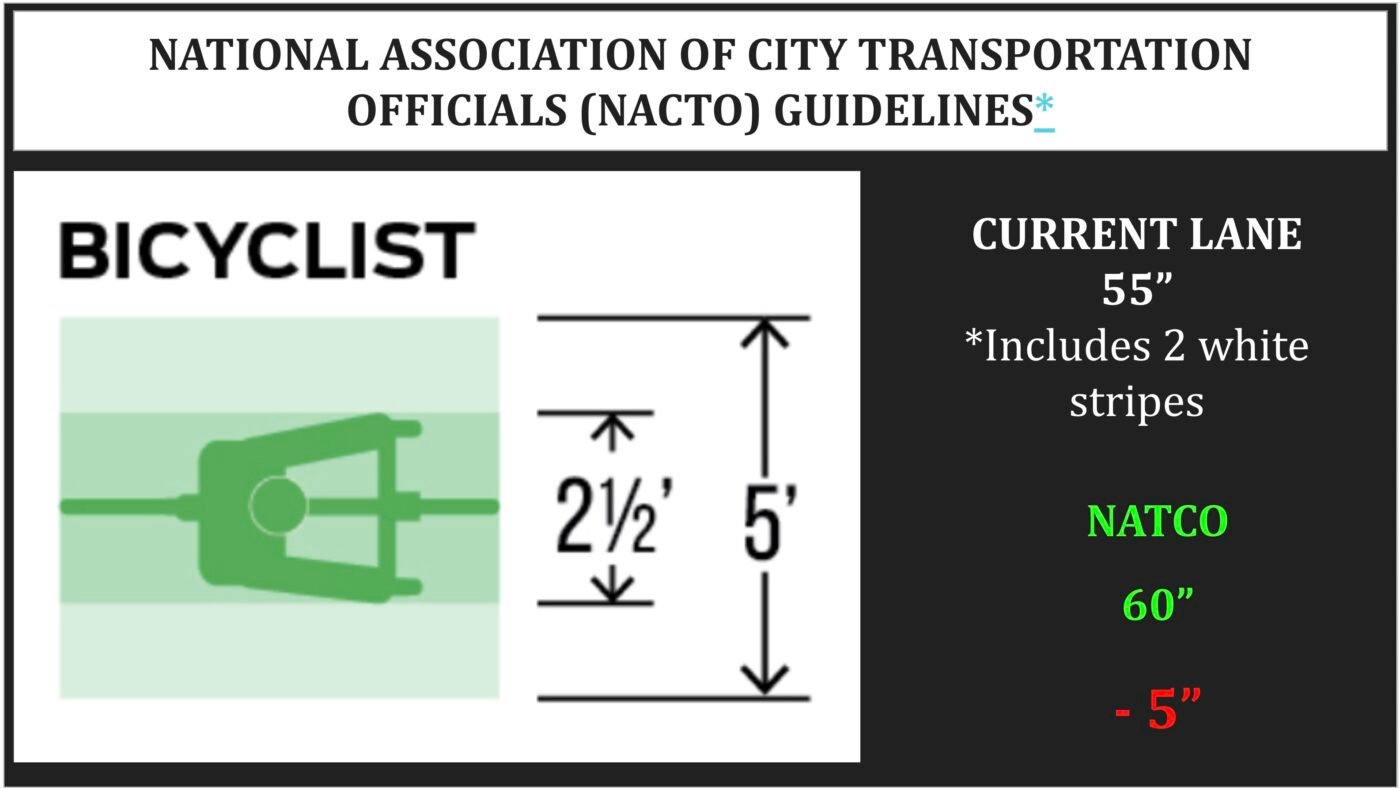

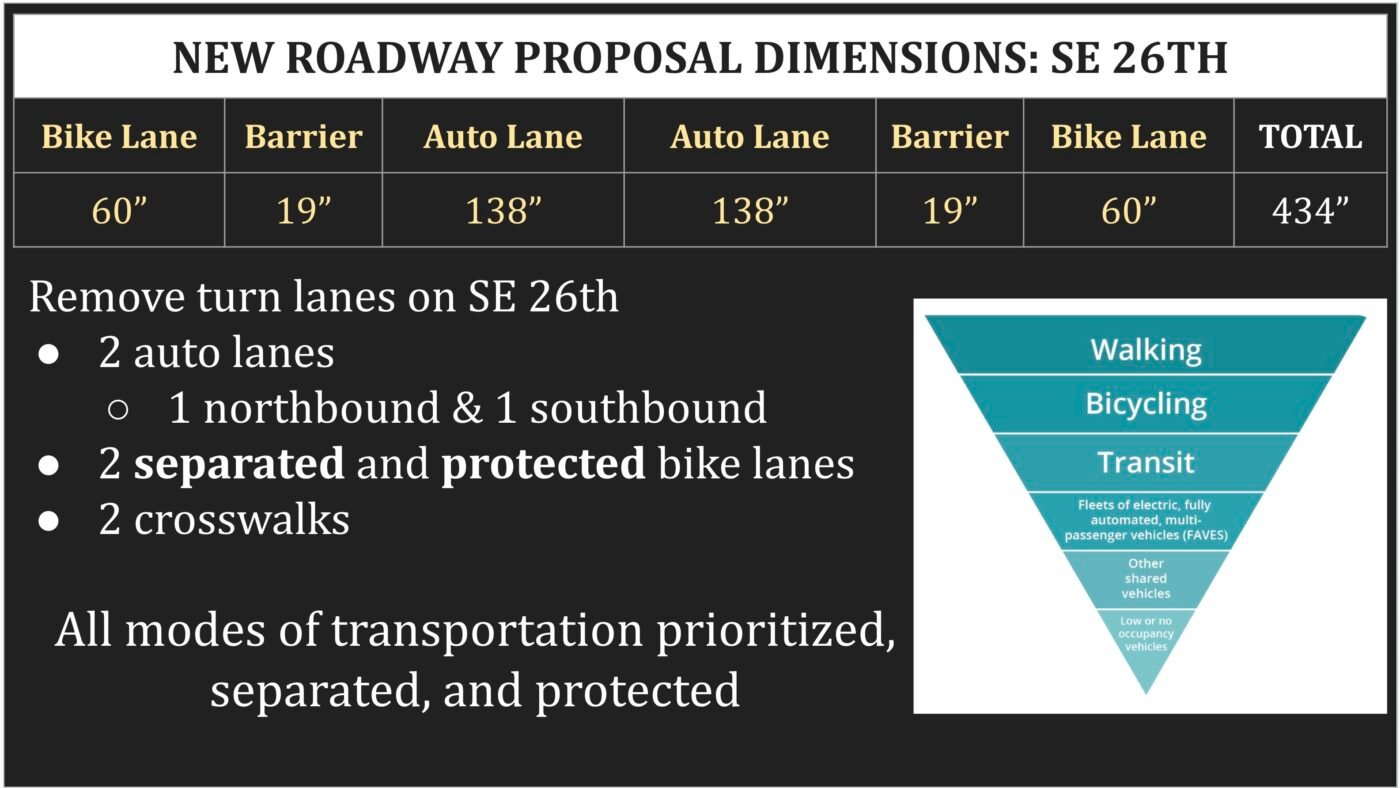
After the tragic collision with a truck driver that killed Sarah Pliner as she biked to work on SE 26th and Powell in October 2022, Wilson swung into action. He spoke candidly with me about the role the truck and its driver played in the crash and said bluntly that trucks like the 53-foot rig that rolled over Pliner should not even use SE 26th Avenue in its current state. Before our conversation, Wilson visited the site so he’d understand the issues better. He then joined the Powell Blvd Safety Working Group and created a slide presentation about the intersection. It was detailed and specific. He’d measured lane widths with a tape measure, researched City of Portland transportation plans to include applicable stats and policies, explained National Association of City Transportation Officials (NACTO) guidelines, and he even coordinated to have three of his Titan freight trucks on at the site so he and his staff could do real, detailed observations about potential lane configurations that would allow truck drivers to continue to use the street, but make it safer when they do so.
If you’re familiar with how Wilson speaks about ending unsheltered homelessness, the above example is just one illustration of how he approaches other issues with similar intensity, earnestness, and infectious optimism that he — and we — can succeed.
At Bike Happy Hour back in February of this year, Wilson said his campaign staff urged him to stay on message and not talk about high speed rail, but he couldn’t resist. “The biggest issue today is unsheltered homelessness, but [high speed rail] is my passion,” he shared during a speech and Q & A to a crowd of several dozen folks at Ankeny Tap & Table. Then he shared his vision: “This [high speed rail] is what we’re going to deliver to our kids, and as soon as the federal government agrees to our statement of work, they’re going to give us $90 million to begin the planning process. We’re on our way… but that just means it’s still 15-20 years away that’s why my advisors don’t want me to talk about it. But that’s my dream and I want that to be your dream too.”
Then Wilson added, “Because that’s how we get rid of cars.” And I think he realized how that sounded, so he pivoted. “We don’t get rid of them. We make high speed rail so attractive…,” then he went into a comparison with Italy where he learned about how a rail line between Rome to Milan now has an 80% share of trips between the two cities. “Imagine [high speed rail] from Portland to Seattle. All those cars go away because nobody wants to drive anymore. Now they’re biking down to the terminal, they’re taking transit. Nobody wants to drive at that point, right? That’s called the transformation.”
That “transformation” includes a city where fewer people drive and more people ride bikes.
“Imagine [high speed rail] from Portland to Seattle. All those cars go away because nobody wants to drive anymore. Now they’re biking down to the terminal, they’re taking transit. Nobody wants to drive at that point, right? That’s called the transformation.”
During his 2020 city council campaign, I asked Wilson why it’s important for cycling to remain a high priority issue in City Hall. “My two core values are livability and mobility,” he said. “And biking is key to improving both… we need to value our biking community, our pedestrian community much higher, because it reduces congestion and emissions. And and it improves livability dramatically.”
We were in the throes of the pandemic at that time, and Wilson strongly supported making some resident streets carfree so that more people could walk and bike safely. “We should reduce and remove traffic from neighborhood greenways,” he shared with me. “These bike and pedestrian-centric roads need to be a priority to encourage safe mobility and our community’s health is our top priority right now. Closing some roads signals that we are in this together and safety is our top priority,” he added.
Wilson has also studied various forms of road pricing like weight-mile taxes for trucks and vehicle miles traveled taxes. On a trip to Amsterdam he observed their low-emission zone. “They limit who comes in,” he explained excitedly at Bike Happy Hour earlier this year. “And if you’re going to come in, you’re gonna pay a higher rate… because they really value pedestrian, they value transit, and they value bicyclists. And that’s what we should be doing as well.”
As mayor, Wilson will have many pricing options to choose from and plenty of advocates just waiting to bend his ear about them. Or he could just dust off Portland’s already adopted Pricing Options for Equitable Mobility plan. One thing is for sure: Wilson likes to push his visions, often over the status quo or current practice. I’ve heard he pushed his Powell Blvd safety idea over what some advocates in that space wanted. And back in 2020 he told me that spending millions on road infrastructure to reach vision zero was “not working as evidenced by our growing fatality rate.” Instead, he wanted use an AI to help drivers be less distracted — and he’d already lined up a supplier in Australia that could provide a device he wanted to implement in Portland.
If you care about transportation in Portland, Wilson is a very intriguing new leader.
At a meeting of the city’s Freight Advisory Committee this morning, veteran Portland Bureau of Transportation staffer Mark Lear sounded optimistic about Wilson. During an exchange about whether or not PBOT staff is able to analyze complicated trucking projects (a person on the committee said outside freight experts should do the work), Lear said, “I’m really looking forward to our new mayor. He’s helped describe safety challenges related to trucks and the experience of a truck driver to the community. We have a massive opportunity to make our teams better and understand these issues in really productive ways.”



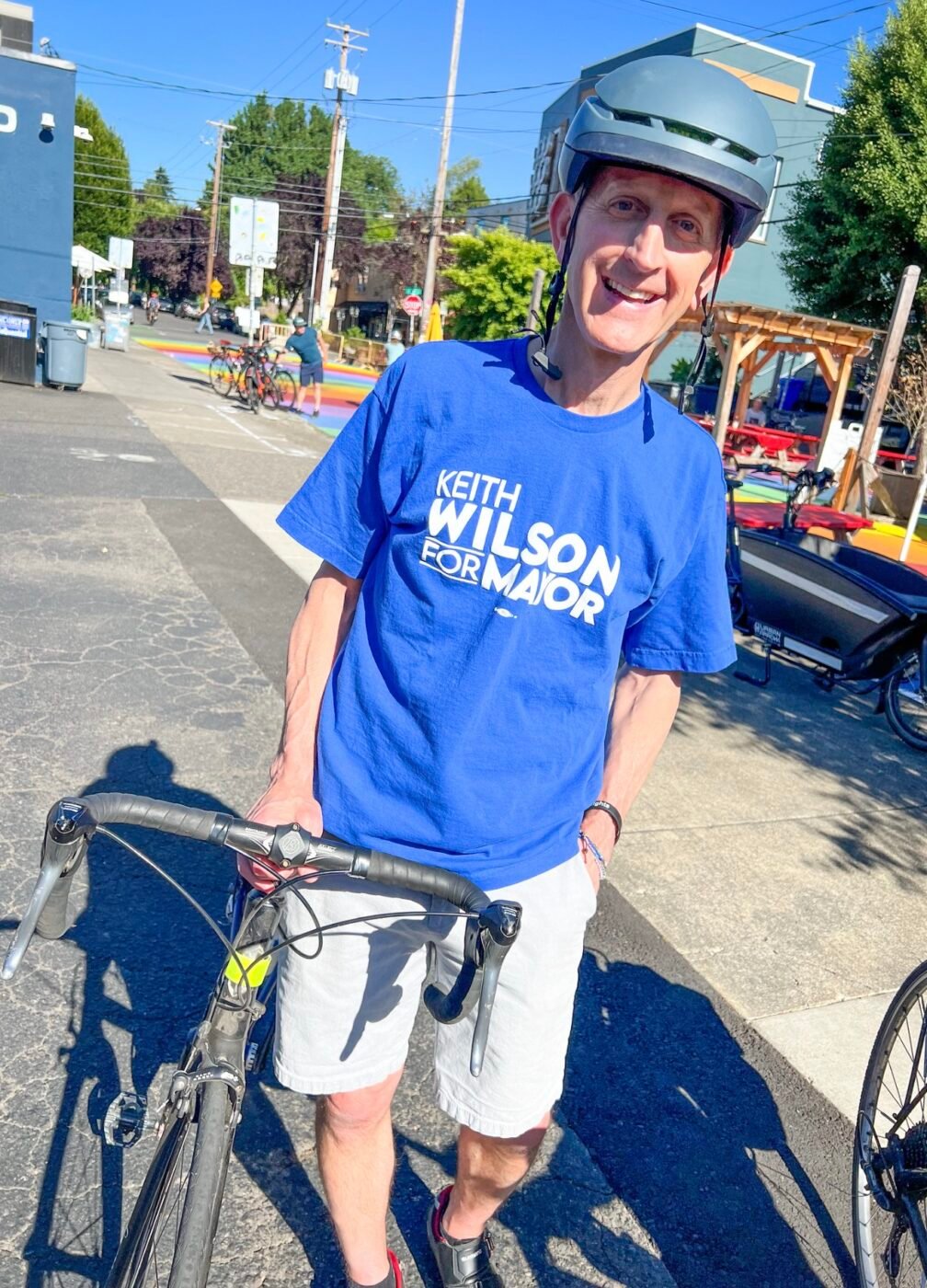
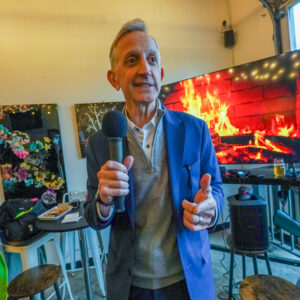
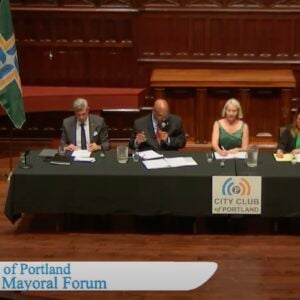

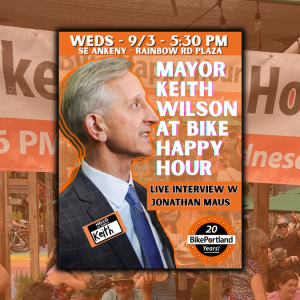
Thanks for reading.
BikePortland has served this community with independent community journalism since 2005. We rely on subscriptions from readers like you to survive. Your financial support is vital in keeping this valuable resource alive and well.
Please subscribe today to strengthen and expand our work.
Do we know anything about Wilson’s positions on the Rose Quarter interstate expansion project or the I5 bridge replacement project?
I’ve not heard anything his transporntation fetish and his focus on respectfully helping homeless people instead of sweeping them or policing them was why I voted for him. I’m optimistic that his bike-sexual(puns for emphasis) viewpoints will be the voice of sanity we need in those projects.
I’m more worried about outside forces causing problems than Wilson. Others in local government, the Federal hellscape, and so much more. He may be the mayor we need, but this may be the worst possible time for him to step into those 靴(I forgot how spell in English).
Did you know Keith Wilson supports arresting homeless people?
While Wilson would prefer to avoid the threat of jail as a primary motivator to get people into shelter, he said by email that he believes some arrests will be necessary to enforce the city’s laws.
https://www.oregonlive.com/politics/2024/10/mayoral-candidate-keith-wilson-says-he-can-end-unsheltered-homelessness-in-portland-critics-say-his-plan-has-holes.html
Yes, following the laws is a requirement to not be arrested, for everyone. It’s been said a thousand times, some people are homeless and will accept help when/if provided, but some are creating unsafe communities and refusing help.
Fixed that for you.
Totally agree! But isn’t it wild how Keith Wilson’s plan is basically the same as Rene Gonzalez’s? Gonzalez got so much heat for it, but now with Wilson, suddenly it’s all good?”
The main difference is that Wilson wants to build/arrange dozens of shelters with capacity in the thousands (not saying this will work or happen on schedule, but that’s his plan), and then crack down on those who remain. Rene has shown no interest in additional shelter capacity and wanted go straight to the crackdowns. Kind of an important distinction.
Keith Wilson might just be the wildcard we need, though I can’t help but keep my expectations in check. Sure, he talks a good game on cleaning up Portland’s mess, but handling those in the homeless community who flat-out refuse help or shelter? That’s like wrestling a greased-up kangaroo—good luck, Keith!
And he’s not exactly set up for smooth sailing with that council stacked so far to the left, they’re practically sitting in the Pacific. They’re likely to block him every time he so much as suggests making a tough call. Add in the little fact that Portland’s budget is tighter than a tick on a sheepdog, and that Jessica Vega Pederson over at the county is clutching the purse strings like they’re made of gold.
She’s got her own idea of “helping” by de-emphasizing shelter in favor of supporting tent cities and building apartments. Meanwhile, she’s just gained two loyal foot soldiers on the Multnomah Commission—Singleton and Moyer—who seem ready to follow her lead. So yeah, color me skeptical. Let’s hope Wilson doesn’t end up just another flash in the pan in this busted Portland skillet, or we’ll be right back here in four years saying, “Same circus, different clown.”
Yeah, I really like Keith and am optimistic about his mayoralty, but that’s very much tempered by the fact that Portland’s mayor is very weak, in some ways even weaker than in the previous charter. The council will set the ordinances and the budget, and the city administrator will administrate. The mayor can only work within those bounds to set a vision and priorities (and perhaps a bit of community organizing and bully pulpiting). Still, if any of the candidates were going to be the visionary Portland needs, I think it’s Keith.
This seems promising:
“We should reduce and remove traffic from neighborhood greenways,” he shared with me. “These bike and pedestrian-centric roads need to be a priority to encourage safe mobility and our community’s health is our top priority right now.…”
One consequence of many Portland greenway designs is that it makes the routes MORE attractive to drivers. I commute by bike on the Clinton Greenway daily and almost get clobbered several times each way by car drivers speeding, passing recklessly, ignoring diverters, ignoring stop signs, being distracted, etc. It’s exhausting, frightening, dangerous, and entirely preventable.
I should note that it is an unmitigated joy joining up with the bike school bus on Wednesday mornings, and not just because it is the safest passage I’ll ever enjoy on Clinton.
Several of the greenways suffer from too much car use because they are allowed by PBOT to be either the most direct streets between locations or tolerated as convenient thoroughfares for avoiding traffic on nearby streets, e.g. autos regularly bustling through NE 53rd between Glisan and Halsey, or motor vehicles driving down NE Sacramento between 57th and 77th to avoid Sandy .
Compare that to Klickitat between 67th and the 30s, where cars don’t encroach with anywhere near the same level of regularity. They don’t seem compelled to come down the greenway because Fremont is a better route for comparatively unencumbered auto travel.
Until the greenways are more thoroughly constructed to reduce and remove traffic, they will continue to underwhelm.
Great point, Matt. I always say that design affordances rule: whatever the design affords determines how it will be used. Make the greenway the straightest and most direct route for cars and drivers will then capitalize on that affordance.
Comment of the week.
–Klickitat is disrupted by the Alameda ridge dropoff in the 30s and it’s blocked on the W by a school diverter at 24th, and then Irving Park.
There’s a little more traffic in the 40s near the Beaumont district than I like but it seems like mostly locals and they’ve seen bikes before.
This is my favorite thing about diverters and modal filters – people can still access their houses and because it’s their neighborhood, they have a direct investment in the streets being safe.
I use Woodward, Clinton’s easterly sibling, and couldn’t agree more. I’m always thinking “why are you here?” about all the cars trying to cut through. Same with SE 34th between Belmont and Division. I think those are streets that could really benefit from some diversion.
People drive on Woodward (and Brooklyn and Tibbetts) to bypass sections of Powell that are too congested. Making driving worse on Powell (as gets proposed regularly) will make biking worse on Woodward.
This idea that AI–as it currently exists–has any meaningful role to play in traffic safety is just misguided. It’s a red herring that I’d hope someone as purportedly involved in transportation issues would recognize as such. The “technology” for better road safety already exists, and I’m sure he knows that it’s e.g., speed cameras, speed bumps, roundabouts, narrower lanes, etc., etc. Don’t puff up tech industry egos.
I greatly admire his passion for high-speed rail, but two issues not strictly about it–out-of-control American construction costs, and recalcitrance of US freight railroads to any kind of investment, especially re: electrification–mean at least as far as his role is concerned in a Cascadia HSR, it’ll probably remain just a passion.
The new mayor has the bully pulpit and a tie breaker vote, they pick the city administrator and they set the agenda by proposing The Budget to the council and initiating legislation as desired. It’s not nothing!
The mayor can also hire and fire the city attorney and the police chief. I think at least one cop will be listening to the mayor.
Wilson seems to have some really appealing positions on transportation (I wish I had known about them *before* the election but I must have missed them – there was so much other noise).
I just worry that his lack of experience in ANY gov’t position means he will lack the skills to work within the gov’t structure to realize any transportation goals. The new mayor role sounds like it could be way more limited than the historical role that Wheeler, Potter etc held.
Also I worry that he could be a trucking enthusiast in sheep’s clothing. You know the type of person we see all the time in Portland: rides his bike for photo ops, says all the right things, joins the right committees, etc. But in the end the person is just PERFORMING advocacy. Since Wilson earns his bread through trucking, I wouldn’t be at all surprised if moving freight around is what he truly and deeply cares about, so that in the first big project where bikes and autos/trucks come into conflict, he comes down on the side of motor vehicles. It takes real guts – even in Portland – to put bikes over cars, and we see over and over again that when it’s a choice between moving people in motor vehicles or moving people in other ways, the motor vehicles still win 99% of the time.
Also the issues around homelessness could eat him alive. Lots of risks! We’ll see. I wish him well. If he succeeds, we all succeed.
I just dont know. I think he was masterful at saying the right things to satisfy everyone. But the actual plan? Not so solid.
As far as reducing dependence on cars I don’t see any discussion of Portland’s relatively low density compared to his comparators like Rome, Milan and Amsterdam which are all super easy to get around on foot and by cab/bus/rail once you get there.
Nor do I see discussion therefore of building out density hubs around a train/rapid bus system that connects to high speed rail. Some of the progressive types like Candace Avalos want to densify the East Side instead of build out Gateway, Lents and Hollywood.
A sea of 5 over 1 apartments where Craftsmans and courtyard apartments used to be. They have all the ideas it seems.
Nor do I see discussion of why Portland’s bike modal share has precipitously declined. No one actually knows the answer to that but it’s worth discussing if you’re serious about biking.
The eliminating unsheltered homeless plan in a year is just a pipe dream with all the progressives dominating Portland now. How would we even do that now that its so entrenched without felonies for some people or alternately civil commitment or criminal hospital stays or other mean stuff.
Am I misunderstanding our new form of government? Throughout the campaign and now in this article mayoral policy positions are discussed and debated, yet is it not the case that the mayor will no longer be making policy (except breaking ties)?
Yeah, eventually Portlanders will wake up to the fact that not only have they changed the way they elect their city council, but that their entire government has also been changed – that mayors will have almost no influence on policy – policy is now officially the purview of the 12-member city council – but more likely policy development and implementation has been devolved onto the various city agencies and the city’s chief administrator, none of whom are elected. Maybe in 5 years they’ll figure it out.
These heads of bureaus are now several more layers insulated from elected officials than they were.
Hello fiefdoms, my old friend.
That’s like saying the President of the United States doesn’t make policy because technically only Congress can do that. We all know the President has enormous influence over what Congress prioritizes and what they end up passing into law.
In any city with an executive Mayor and a legislative City Council, the Mayor still has enormous influence on policy, and that will be true in Portland. First, the Mayor can introduce legislation directly and can force the City Council to take a vote on it, meaning they can’t just ignore the issue and have to go on the record about it. Second, the Mayor develops the initial City Budget each year, and the City Council can tinker with it but has to use the Mayor’s Budget as the starting point. Third, the Mayor (and the City Administrator they hire and can fire) have the power to actually implement and enforce the laws and policies passed by City Council, so the Mayor has some power to get their way simply by signaling they will slow-walk implementation or otherwise not prioritize it. Fourth, they have the power of the bully pulpit to give speeches, set a direction for the city, and influence public opinion, and as the only elected offical elected citywide (other than auditor) they can legitimately claim to be speaking for the whole city and not just a district. That has power. Finally, they can break ties, which is actually a pretty powerful thing. I think it will be fairly common for the six Councilmembers from two districts to agree on something, and the Mayor will be the one to decide if it passes or not. So they can make deals to horse-trade votes in exchange. Let’s say SW and East Portland want to prioritize sidewalks, and the other districts don’t care enough about it. The Mayor could say “I’ll break that tie and pass it, but I want you to support my homeless shelter proposal even though it means more shelters in your districts.” That’s how politics is supposed to work, and we’ve been lacking it for so long.
The only big power that executive Mayors have in a lot of other cities that we don’t have in our new system here is the power to veto City Council votes, and force a super-majority to break the veto. I’m not sure yet how I feel about that. There are some advantages and disadvantages. I think if people start to feel like the City Council is passing a ton of stuff 7 to 5 that the Mayor and a lot of the public disagree with, I could imagine a future ballot measure that would add the veto power as an additional check and balance. But we’ll see.
“That’s how politics is supposed to work, and we’ve been lacking it for so long.”
It would be even better if those two items were evaluated on their own merits.
Thanks for so thoroughly answering my question, AlanWake.
It’s not insignificant that 3 of the current city councilors ran for mayor. Obviously they didn’t see it as a symbolic or powerless position.
I met Keith a few years ago when he was my classmate in the PBOT Traffic and Transportation class, along with Shawn and Hami and other good folks. His project focused on mitigating the impact of then-planned tolling on I5 in local neighborhoods, which is to say, making sure vehicles had disincentives to leave the tolled interstate and take local roads. He seemed sincere and interested in innovative solutions.
He also cited my class project, about removing leaves in bike lanes (the scourge of fall!), when he attended the BP Happy Hour this summer (and credited me, thanks Keith!).
He may have some innovative ideas, which is great. I also think we probably have some excellent and innovative ideas that our many talented city staff could implement with the proper leadership, support, and funding. It would be great to have a city government that would get out of the way of those folks too. I don’t know that we are lacking ideas, but infrastructure and will to implement.
As our new mayor a big high speed rail supporter, I hope he’ll get the ball rolling on an idea transit activist Jim Howell (among others) pushed for decades: acquire the old Thunderbird/Red Lion site next to the Coliseum for Portland’s new train station. It may take years before we can build the station itself, but the land could be used as a 4-acre safe rest village until funding for a train station becomes available.
AI is the least environmental thing in existence. How about we use our regular intelligence implementing common sense road design instead?